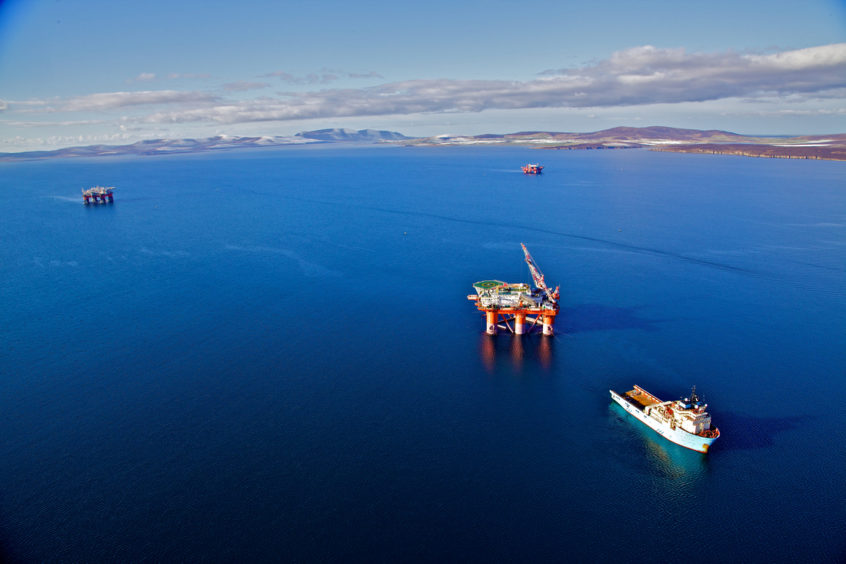
Orkney council and port chiefs are placing Scapa Flow at the heart of a bold £230 million harbour infrastructure masterplan that “embraces” decarbonisation.
They claimed the vision would help Orkney manage the energy transition while continuing to generate social and economic benefits from ongoing oil and gas activity.
The first phase aims to deliver a new deep-water quay at Scapa Flow as well as upgrades and extensions to existing piers at Hatston, Kirkwall and Scapa.
Stromness would get a marina expansion and dedicated cruise tender pontoon under the plans, which would be carried out over a 20-year period.
A business case found that the proposals could have a “transformational” impact on Orkney’s economy and society, with as many as 115 new jobs created.
The construction phase would also generate substantial employment opportunities.
The exact timing of construction for each project is not yet known and will depend on a range of factors including, funding and environmental considerations.
Orkney Islands Council and port authority bosses hope to firm up timelines over the next 12 months.
They are “thoroughly investigating” all funding options and engaging with government, “different investors” and “probable end users” who could see the benefits these plans.
Council leader James Stockan did say the new quay at Scapa was on the list of projects included in the application for an islands growth deal which recently received funding commitments from the Scottish and UK governments totalling £100m.
Mr Stockan said: “We are continuing to ensure that the funding earmarked for this will be secured.”
The council also said it had consulted a range of stakeholders on its plans, including local communities and environmental bodies like Scottish Natural Heritage, which said: “We welcomed the opportunity to provide advice on the Orkney Harbour Masterplan phase one.
“Orkney Islands Council as Competent Authority has responsibility for consenting the project at this phase and we look forward to working with them as the plan develops.”
If the council can drum up the cash and dispel environmental concerns, it would spend £115.7m on the new quay at Scapa Flow, which it described as largest natural deep-water harbour in the northern hemisphere.
The plans comprise a 985ft-long outer quay and two 360ft inner berths, water depths of 65ft, ample laydown space and dedicated road connections.
The location is regarded as “optimal” for construction, operations and maintenance activities for offshore wind developments, while the quay could also accommodate semi-submersible oil platforms.
In addition, the site is a potential location for a storage and distribution facility for liquefied natural gas (LNG), which pollutes less than crude oil.
Mr Stockan said: “We believe the time is right to maximise the incredible natural assets and geography of Scapa Flow and Orkney to ensure a long-term sustainable future for our communities.
“We are open for business now and ready to work with potential investors and operators to develop the significant strategic and international opportunities Scapa Flow offers.”
In 2016, the council signed a memorandum of understanding (MOU) with four companies, including US oil major ExxonMobil, to explore opportunities to develop infrastructure required for LNG deliveries in the north of Scotland.
A number of ship-to-ship transfers of LNG have already been carried out between vessels anchored in Scapa Flow.
Harbour master James Buck has not heard from the partners behind Caledonia LNG for several months, but said they might “come knocking on the door” once they’ve seen the masterplan.
Mr Buck added: “Tackling decarbonisation is the strand that binds these proposals together providing infrastructure and knowledge for renewable energy developments around our waters will allow us to reach climate change targets.
“We will also look at the potential for net environmental gain through habitat reinstatement and enhancement.”
Orkney already has a strong track record for marine renewable energy development.
The European Marine Energy Centre boasts multi-berth, purpose-built, open sea test facilities for wave and tidal energy converters at five sites across Orkney.
Recommended for you

